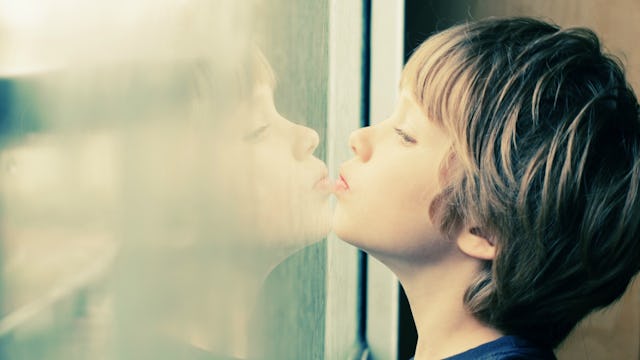Why I Regret Trying So Hard To Socialize My Child With Autism

When my son was two and diagnosed with mild autism by our developmental pediatrician, our doctor assured us that as he grew, our son would learn how to better socialize. I took out a paper and pen and wrote notes as the doctor spoke: “Cast a wide net. Befriend typical and non-typical children. Join groups and activities with your town and community, as well as others.”
I looked at my son, who barely spoke at the time, and paralleled played with other children without really interacting. Still, he would laugh and smile as he watched them. I bit my lip and sighed, wondering if he would ever have friends.
Sure enough, as if his doctor could see the future, our son did begin to socialize more. In social group therapy, he worked on asking other children to play. He would diligently and carefully state his name and ask the other child theirs. He was proud and excited every time he did it. He derived real joy from playing with his peers.
Once he was in kindergarten, he would come home and list his friends. We noticed that he played and interacted with one other child a lot, but appeared to have a whole group with which he interacted. We were thrilled and wanted to hone and expand their relationships, by having play dates and joining similar activities.
However, we soon noticed that his friends, and one in particular, were not always kind to our son. While they were mostly nice children, they would sometimes isolate, tease, and compete with him. Our son did not know how to handle these occurrences and would feel very upset.
We overlooked it many times as parents, validating the behavior by saying that this is how boys play, or typical kids tease — it always blows over. When our son would tell us he was sad, we would give him tips on how to better stand up for himself when these things happened. We were so concerned with him making and keeping friends that we forgot the most important things — his own self confidence and self worth.
After a particular incident with another child led to ours feeling emotional all day, we sat and had a talk with him. We realized just having friends didn’t mean he was doing well socially, and that it is also about helping him to choose his friends wisely and carefully.
This time, I spoke to him, without doctors, therapists or other children present. I told him a lesson that we both had to learn — that we must never accept a person as a friend who doesn’t make us feel good about ourselves. A real friend plays nicely, shares, doesn’t isolate or upset. It isn’t important to have “a” friend, it is important to have a nice friend.
Soon, instead of coming to me to tell on someone who made him feel sad, he began coming to me to proudly announce he and a friend shared snack.
It is my hope that we can continue to guide him to improve socially and connect with others in a more positive way, and to cast an even wider net.